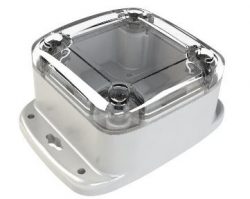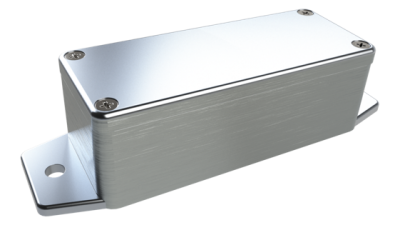- URL
Share
 Whether engineering a retrofit or new electronics project, choosing the right enclosure can be critical to the overall reliability. Knowing the conditions that the enclosure will be exposed to will define your decision.
Whether engineering a retrofit or new electronics project, choosing the right enclosure can be critical to the overall reliability. Knowing the conditions that the enclosure will be exposed to will define your decision.
Any installation that is outdoors or exposed to water, dust or the elements must meet or exceed local and industry code. But what does that really mean?
Fortunately, the International Electrotechnical Commission (IEC) has created a system for rating an enclosure’s level of protection from external conditions that can help you choose wisely. The IP Code (or International Protection Rating) gives engineers and architects a baseline for determining what enclosure to use.
Understanding IP Codes

To best understand the various levels of protection, you need to know what the IP Codes mean.
The International Protection Rating consists of the letters “IP” followed by a two-digit designation. The first digit denotes the enclosure’s solid protection rating. From fingers to fine particulate, enclosures offer six levels of protection from solid intrusion.
The second digit gives the consumer the enclosure’s protection from non-reactive liquids, such as water. The code is based on an eight-level rating system — from basic protection against dripping water to fully submersible.
Weatherproof
 According to the IEC, a “weatherproof” enclosure is rated for protection ranging from dripping water to low-pressure sprayed water, depending on the IEC coding.
According to the IEC, a “weatherproof” enclosure is rated for protection ranging from dripping water to low-pressure sprayed water, depending on the IEC coding.
A weatherproof enclosure is often a good option when the enclosure is installed in a location that is protected by additional means, such as a roof or fascia. But the components inside a weatherproof enclosure can be compromised if dust or water is blown or sprayed at a high pressure, like a powerwasher.
If you need more protection, use a higher rated enclosure that’s considered watertight or waterproof.
Waterproof
An enclosure that is rated “waterproof” must be able to protect the interior contents from water or liquid intrusion when completely immersed.
A Polycase YQ Series enclosure exceeds IP68 standards and provides excellent protection from water and the elements, insuring that the electronic components inside will remain safe and secure.
Waterproof enclosures provide more complete protection, and they are an excellent choice in wet locations or installations that are exposed to more severe conditions.
Furthermore, waterproof enclosures exceed the minimum standards of weatherproof enclosures, and therefore provide greater safeguards to prevent failure of electronics due to water ingress.
Waterproof enclosures are available in a wide variety of materials and finishes. Polycase offers enclosures in plastic, aluminum, steel or stainless steel.
Regardless of indoor or outdoor installation, waterproof enclosures provide component protection and insure optimal operation and reliability.
Final Thoughts
When planning your next project, consult the IP ratings to clarify which enclosure is best suited for the job. That way, you can make the right choice to protect your electronic components from damaging moisture and environmental elements.
0 Comment